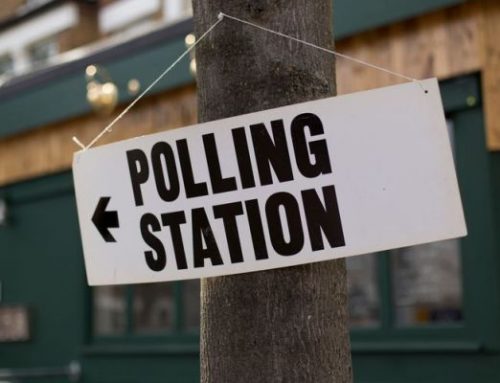How will the next six months change the planning environment for the development industry?
Has our politics ever been as polarised as it is today? The next general election, when it comes, is set to be a battle between a Conservative Party espousing the politics of UKIP, and a Labour Party advocating the most far left programme since the 1980s, under the leadership of Jeremy Corbyn. Hijacked by their extreme factions, moderates on both sides no longer feel at home in the parties they once controlled.
Brexit has opened a new fault line in British politics and heightened divisions across the country, giving rise to a new level of bitterness and rancour in public debate. Abusive and vile language has become part of everyday politics as the forum for debate increasingly moves online. Racism and religious intolerance have become more widespread.
Developers tell me this nastiness is infecting the day to day work of promoting planning applications. ‘I’ve never known a period like this,’ one land promoter told me. Despite opinion polls showing support for development, objectors are becoming more aggressive and belligerent in their opposition.
The next six months are set to be the most tumultuous political period in a generation, potentially triggering a political or constitutional crisis, and possibly a further General Election or a second EU referendum.
There is still no certainty on the ultimate end game. A UK-EU deal remains the most likely outcome because a no-deal scenario would be so catastrophic for both sides. But there is no guarantee of this and even if a deal is reached, it will merely mark a sign-post to further negotiation, discussion and disagreement. The uncertainty of the past 18 months will continue over the next two years, if not beyond.
Already, this is hitting business confidence and the housing market. Business is desperate for certainty, but the nature of these negotiations and the process of approving them at national Parliaments, means that they will go to the wire.
Assuming there isn’t a General Election, the first test of public opinion will be the local elections on Thursday 2nd May 2019 – just 33 days after Brexit. There are elections in 272 local councils across England, with 161 District and Unitary Councils facing all-out elections, where small shifts in votes could precipitate significant political change.
The general pattern historically is for voters to use local elections to kick the national Government of the day, but the Conservatives have done remarkably well over the last eight years in bucking this trend and remain the dominant Party of local government. Is this about to change? Possibly, although there are few signs of an upturn in the fortunes of Labour, Lib Dems or UKIP.
At the local level, councils are facing their own crisis, most notably due to the squeeze in national funding which is placing acute pressure on council budgets and services. At the same time, the need to finalise local plans is dividing public opinion and galvanizing political action across communities. In some areas, thousands have objected to local plans which propose ‘unacceptable levels of new housing.’
There were some signs at the 2018 local elections – in places such as Tandridge and South Cambridgeshire – of a voters’ backlash against local plans, but in 2019, many more of these southern councils are up for election and many where the whole council is facing re-election.
How will all this play out? It’s impossible to say. Much will be decided by the national mood at the time. If Theresa May delivers a ‘good’ deal, the Conservatives might just hold on and very little will change.
But the Conservatives are facing an uphill struggle and are starting from a high base. The last time these elections were fought was on the same day as the 2015 General Election. A backlash against Brexit and local plans could change the local government map of Britain, particularly in those prosperous parts of the South East; and in doing so, change the planning environment for many developers.
If you would like to talk about what all this means for specific projects and specific councils, please get in touch with the Forty Shillings team on 020 8786 6130 or via email at office@fortyshillings.com
For a list of councils that face all-out elections, click here.
For a list of councils that face elections by thirds, click here.






